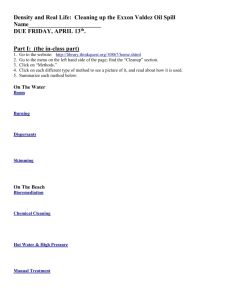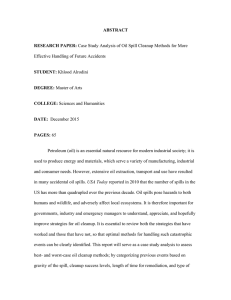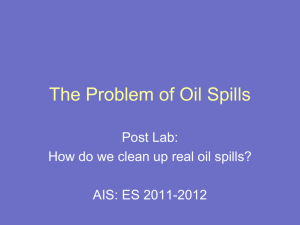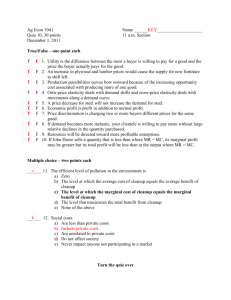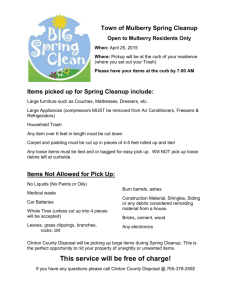Underground Storage Tank Fact Sheet The Problem:
advertisement
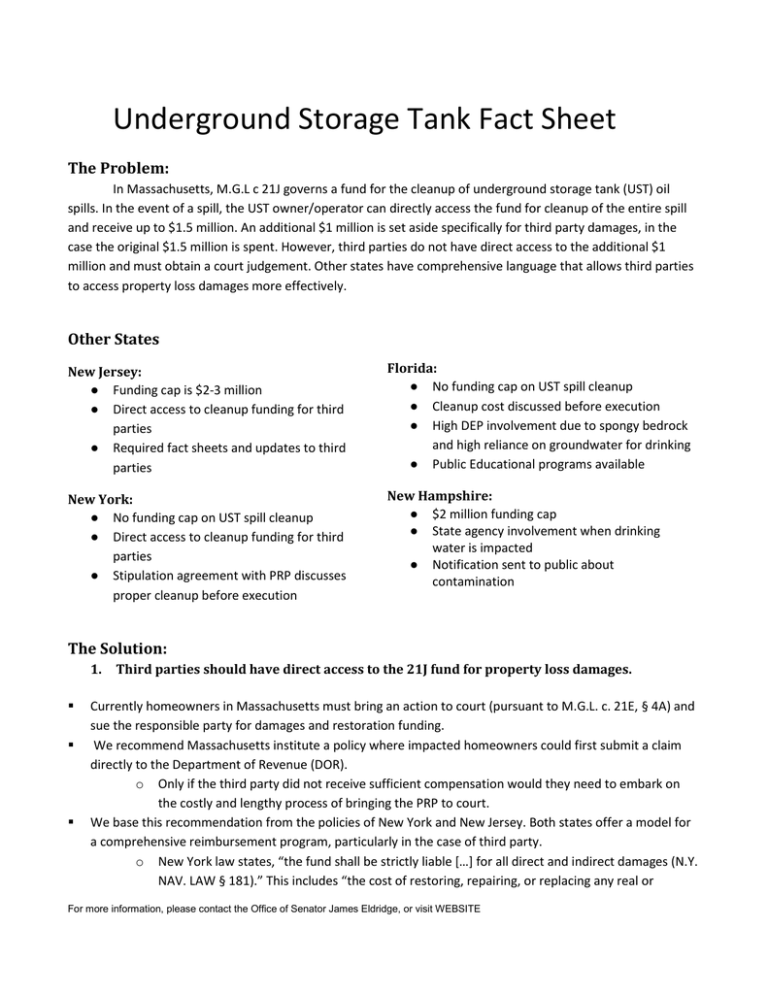
Underground Storage Tank Fact Sheet The Problem: In Massachusetts, M.G.L c 21J governs a fund for the cleanup of underground storage tank (UST) oil spills. In the event of a spill, the UST owner/operator can directly access the fund for cleanup of the entire spill and receive up to $1.5 million. An additional $1 million is set aside specifically for third party damages, in the case the original $1.5 million is spent. However, third parties do not have direct access to the additional $1 million and must obtain a court judgement. Other states have comprehensive language that allows third parties to access property loss damages more effectively. Other States New Jersey: ● Funding cap is $2-3 million ● Direct access to cleanup funding for third parties ● Required fact sheets and updates to third parties Florida: ● No funding cap on UST spill cleanup ● Cleanup cost discussed before execution ● High DEP involvement due to spongy bedrock and high reliance on groundwater for drinking ● Public Educational programs available New York: ● No funding cap on UST spill cleanup ● Direct access to cleanup funding for third parties ● Stipulation agreement with PRP discusses proper cleanup before execution New Hampshire: ● $2 million funding cap ● State agency involvement when drinking water is impacted ● Notification sent to public about contamination The Solution: 1. Third parties should have direct access to the 21J fund for property loss damages. Currently homeowners in Massachusetts must bring an action to court (pursuant to M.G.L. c. 21E, § 4A) and sue the responsible party for damages and restoration funding. We recommend Massachusetts institute a policy where impacted homeowners could first submit a claim directly to the Department of Revenue (DOR). o Only if the third party did not receive sufficient compensation would they need to embark on the costly and lengthy process of bringing the PRP to court. We base this recommendation from the policies of New York and New Jersey. Both states offer a model for a comprehensive reimbursement program, particularly in the case of third party. o New York law states, “the fund shall be strictly liable […] for all direct and indirect damages (N.Y. NAV. LAW § 181).” This includes “the cost of restoring, repairing, or replacing any real or For more information, please contact the Office of Senator James Eldridge, or visit WEBSITE o personal property damaged (Id.).” Also, the fund covers “any reduction in value of such property (Id.).” New Jersey law states “site restoration costs are limited to the actual area of the remediation of the leaking underground storage tank. Eligible costs for certain site restoration categories are capped at $5,000 each (Instructions for the petroleum underground storage tank remediation, upgrade, and closure fund, 2011).” These categories include, but are not limited to landscaping, hardscaping decking costs, and pool costs (Id.). 2. The Massachusetts Department of Environmental Protection needs a series of requirements issued to the LSP for necessary public outreach after an UST spill occurs. We recommend both short term and long-term community outreach. As a short term solution, we recommend a contacts page on the MADEP website that would allow tank owners, licensed site professionals (LSPs), and affected third parties to quickly locate the correct contact to answer their questions. o The webpage would allow affected third parties to educate themselves on what steps to take without the use of a personal environmental consultant, or environmental lawyer. In the long term, we recommend modeling the public outreach program of New Jersey, as they have the most comprehensive policy regarding public outreach of the states researched. o The New Jersey Department of Environmental Protection (NJDEP) sets a detailed schedule to promote public outreach by the LSP. Incorporating New Jersey’s outreach practices into Massachusetts would allow for families to have a direct contact who could answer questions on the tests results and general cleanup process. o Little to no extra manpower would be expended by the MADEP since the responsible party and contracted LSP would be responsible for the public outreach process. 3. A legislative aide should continue research regarding MADEP involvement in UST spill cleanups. There is a need for increased involvement of the MADEP in severe oil spills where human health or natural resources are at risk. The most prevalent issue that the MADEP faces based on interviews with four employees is the lack of staffing. States with higher numbers of staff, such as New Jersey and Florida, are able to further regulate the cleanup process and aid third parties. A case can be made for increased staffing, or an alternative solution can be sought. Further research can also lead to increased involvement in particular cases, such as drinking water contamination For more information, please contact the Office of Senator James Eldridge, or visit WEBSITE
